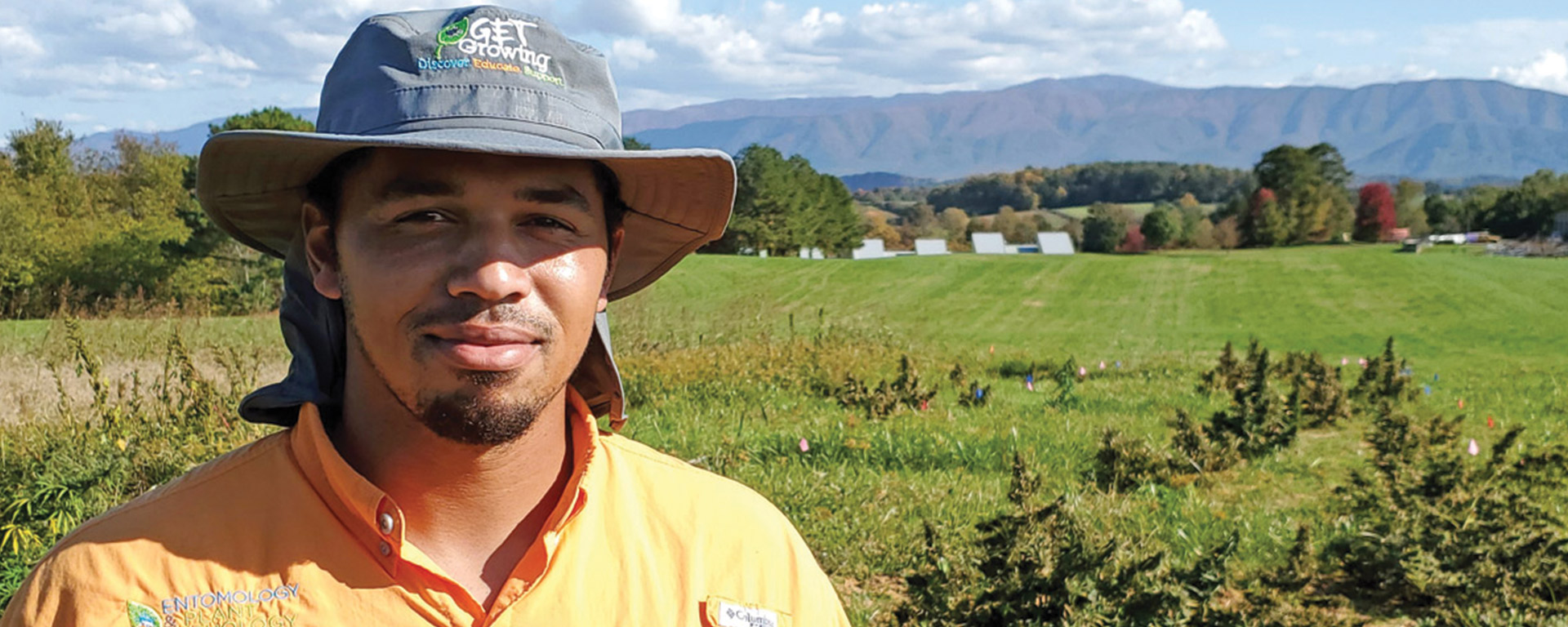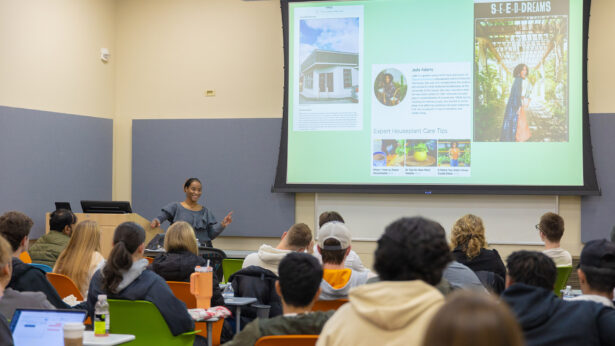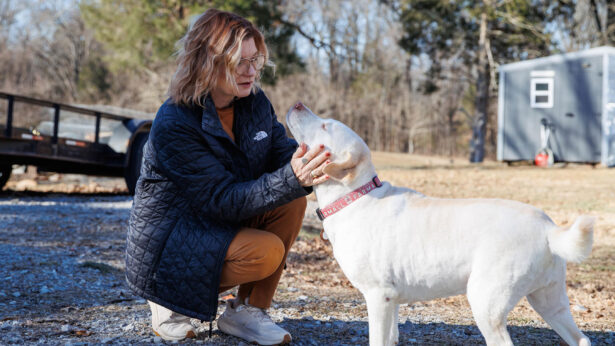When Julian Cosner looks across a field of industrial hemp, he sees the pests that can wreak havoc in this emerging agricultural market in Tennessee.
Cosner, a doctoral candidate in the UT Institute of Agriculture’s Department of Entomology and Plant Pathology, hopes his research leads to state-of-the-art tools and production methods.
“It can be difficult for farmers to make a living. There is enormous pressure to generate enough production to be profitable,” Cosner says. “Farmers are also facing the added challenge of losing about 35 percent of their crops—and potential revenue—to pests and diseases. If my research can reduce that loss for hemp growers, it can have a huge financial impact.”
After being virtually banned for almost five decades, the 2018 Farm Bill legalized the production of hemp as an agricultural commodity and removed it from the list of controlled substances. However, little current guidance exists for growers raising hemp on 5,700 acres in Tennessee.
Cosner’s work will help change that through integrated pest management, which is a sustainable approach to reducing agricultural pests by focusing on nonchemical strategies rather than traditional pesticides.
His research examines the most impactful pest in hemp—the corn earworm.
“This insect is a tough one to deal with,” he says.
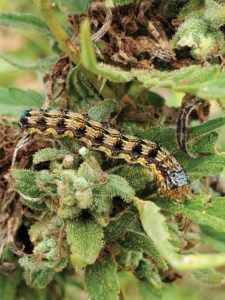
This pest is particularly damaging because, in its larval form, it feeds on the bud of the hemp plant, which is the marketable portion of the crop when it’s grown for cannabidiol (CBD); 95 percent of hemp farmers in Tennessee grow for CBD.
Pest infestations vary by region, and Cosner hopes to provide information that is specific to the Southeast and Tennessee in particular. He is currently researching different varieties of hemp to check for variation in impact resulting from corn earworm infestations. If it can be determined that certain varieties are less affected by the pest, then growers can reduce their loss and increase their profits.
As a native of Knoxville and a 2016 UT Knoxville alumnus with a B.S. in plant sciences, Cosner wanted to work in the developing research area.
“I chose to go with hemp since it was a fairly new market,” Cosner says. “It allowed me to get my foot in the door with an emerging product.”
Cosner hopes his research will help position the university as the hemp authority.
“It’s important for growers to know that UT is doing this research and that we are poised to be the hub of information for a growing hemp industry,” Cosner says. “Hemp could be a significant source of revenue in Tennessee in the future, and UT can play an important role in helping growers become profitable.”
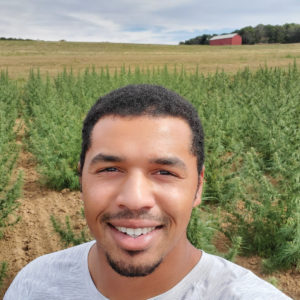
After his first semester of graduate school, Cosner received the prestigious Tennessee Doctoral Fellowship, which is funded by the Tennessee Higher Education Commission and UT’s Graduate School. This support has allowed Cosner to focus on research and professional development, without the burden of the financial pressure that often accompanies graduate work.
Similarly, he hopes his research can help Tennessee families financially.
“I know growers that are putting their kids through college with hemp money,” Cosner says. “If we can give them information that helps them be more successful, it can help them better provide for their families.”
